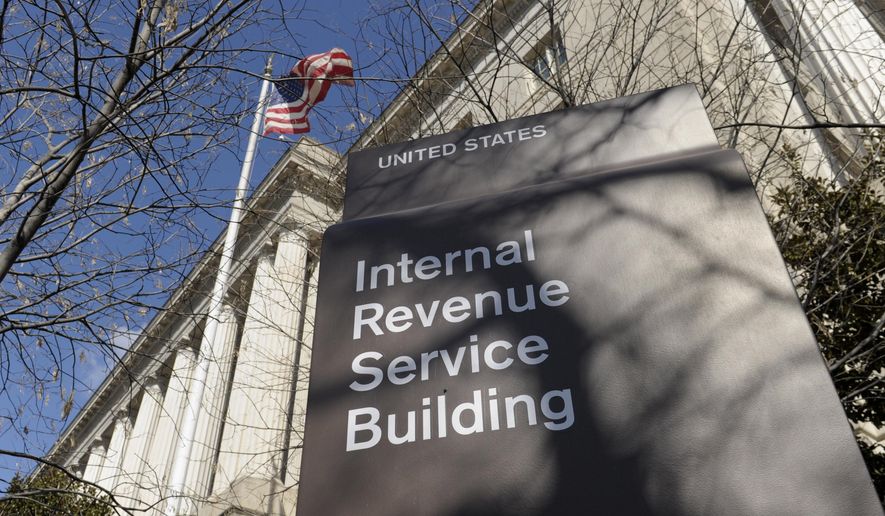When the House meets Monday under new Republican Speaker Kevin McCarthy, GOP lawmakers will quickly move to strike funding for the thousands of new IRS agents approved last year by the Democrat-led Congress and the Biden administration.
But they’ll first have to pass a package of new rules governing the chamber that make key concessions to a group of conservative lawmakers who nearly blocked Mr. McCarthy from taking the speaker’s gavel.
One of the most consequential changes reinstates a centuries-old rule that allows a single lawmaker to call up a vote to eject the speaker in the middle of a congressional session.
Reinstating the rule was the top demand of a group of 20 conservative lawmakers who at first withheld their support from Mr. McCarthy, of California, dragging out the vote for speaker for a historic five days and 15 ballots.
The rules change is meant to hold Mr. McCarthy accountable, and under threat of removal, for the duration of the 118th Congress on matters conservatives believe are critical for the party — in particular controlling the growth of government spending.
Several key changes to the rules are aimed at reining in government spending, which has grown exponentially since the start of the COVID-19 pandemic. Over more than a decade, spending deals often have required passing last-minute, massive “omnibus” bills that few lawmakers have time to review before voting on them.
The new rules would limit increases in direct spending and block the House from automatically raising the nation’s borrowing limit. Raising the tax rate rules would also require a three-fifths vote in the House.The changes would allow lawmakers to more easily amend spending legislation by requiring each of the 12 appropriations bills to be considered separately and under an “open rule.”
Another concession would eliminate a provision that allows the House to raise the debt ceiling automatically when it passes a budget resolution.
The GOP’s five-seat majority means nearly all of their conference must vote in favor of the rules package for it to pass over what will likely be unanimous opposition from Democrats. So far, only one Republican lawmaker, Rep Tony Gonzales of Texas plans to vote against it.
Once the GOP passes the rules package, the party can begin considering legislation.
The first bill on the list Monday is one the GOP promised during the midterm election campaign: to rescind much of the $80 billion in new funding for the IRS provided by the 2022 Inflation Reduction Act, a tax-increase and green energy bill passed by Democrats and signed into law by President Biden.
Some of the new IRS money is meant to hire thousands of new agents tasked with rounding up uncollected tax revenue under a now-delayed reporting requirement for third-party transactions of $600 or more for “gig” work.
Mr. McCarthy, delivering his inaugural address after winning the speaker’s gavel early Saturday morning, promised the IRS measure would be first on the list of bills that the new GOP tackles.
“We believe government should be to help you, not go after you,” Mr. McCarthy said.
Republicans plan to use the rest of the week to advance other key campaign promises and priorities.
They also plan this week to vote to impanel two new committees. One committee would examine competition between the U.S. and the Chinese Communist Party. The second vote would create a new Judiciary subcommittee that will investigate “the weaponization of the federal government.”
Mr. McCarthy, in his inaugural address, said Congress would examine “the weaponization of the FBI,” which has come under GOP criticism over its targeting of former President Donald Trump and efforts to censor information on social media.
While the new panel is poised to focus on the FBI, it is also empowered with the authority to examine information from the House Intelligence Committee, which oversees the Central Intelligence Agency.
Rep. Jim Jordan, Ohio Republican and chair of the Judiciary Committee, will head the special panel. According to the GOP, it will examine how the executive branch, including the Justice Department, collects information or otherwise investigates U.S. citizens, including ongoing criminal investigations.
The panel will also probe how the executive branch agencies “work with, obtain information and provide information to the private sector, non-profit entities or other government agencies, to facilitate action against American citizens.”
Other legislation on the agenda this week includes proposals that would ban the U.S. from selling products from the Strategic Petroleum Reserve to China, and a bill that would require district attorneys to report how many cases they declined to prosecute or that resulted in a plea agreement.
The bills are among the priorities Republicans outlined in the weeks before the midterm election, when polls showed voters were concerned about rising crime and high energy prices.
“Two months ago, you voted for a new direction for our country,” Mr. McCarthy said Saturday. “You embraced our Commitment to America. And now, we are going to keep our commitment to you.”
• Susan Ferrechio can be reached at sferrechio@washingtontimes.com.




Please read our comment policy before commenting.